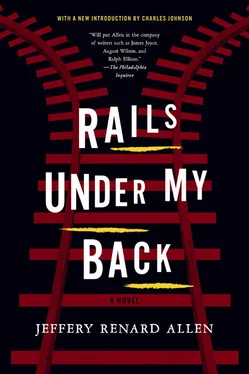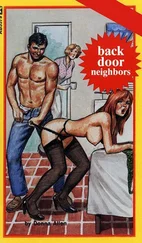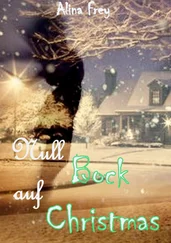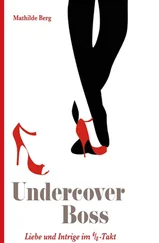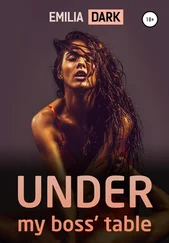The television wavers in the distance like far-off smoke.
The pen employed in finishing my story and making it what you now see it to be has had no little difficulty putting it into language fit to be seen and read.
She sees R.L.’s one surviving photograph, the crumpled black-and-white which gives up his form, his color, his hazel eyes.
As you know I came out here for fresh fields to plough, new pastures. We martyr to motion. So here I am missing the changes of season.
She sees his long legs sheathed in shining cowboy boots.
What I have written is written. I drink this cup full to the end. And the water is sweet. I read. I think. I sleep. I read some more. God, enable me to proceed in this labor in the whole task so that when I render up at the last day an account of the talent you gave me I may receive pardon for the sake of Christ our Lord.
She looks up from the letter and sees Deathrow in her window, his face a reflection of eternal dreaming life.
SHE LEFT HUNDRED GATES for the summer’s first heat. Summer was already doing its work, for an old red ambulance, a long and low red hearse, was parked in front of the building, anxious for the sick or the dead. She drifted like a candle flame through the heated haze.
Taxi!
Where to, ma’m?
She entered the taxi to a humming air conditioner.
Where to?
She told him.
The cab pulled away under a sky that demanded to be noticed. Slow constellations wheeled overhead, fat swollen stars she had seen for twenty-eight years; none had any name or meant anything by shape or brightness or position. Thick trees bloomed on both sides of the expressway. (She’s intensely alert to trees tonight.) The air rippled like camouflage. She said his name: Deathrow. He was somewhere definite, a dot on a map. She said his name: Deathrow. If voices had legs, they could crawl into all sorts of places, unexpected, unwanted perhaps, uninvited guests, willing and hungry. Deathrow.
She settled back in speed. Monday. The past week had rushed like a torrent. The flood had forced the new Cotton Rivers to reschedule the Great Awakening for today. (The media had it that he would declare Monday the new Sabbath.) And he had moved the location from downtown south to Woodlawn, to Mount Zion Baptist Church, which Reverend Tower had built and raised, a church high enough that every lowlife on Church Street could watch it from the deep gutter, Deacon Rivers his right-hand man, his first mate who took the helm when Reverend Tower died, directed a church where he was also to die and be remembered.
The thought sends her.
One, two, three, four
Snap, snap, back, back
Put yo hands on yo hips
And let yo backbone slip
Shake it to the east
Shake it to the west
Shake it fo the one
You love the best
How many years had it been since she’d lived in Woodlawn, lived where the Stone Park Rangers and the Crazy Insane Disciples waged war with death-hard fists, sharpened switchblades — steel drinks blood in the darkness — and single-shot zip guns? She remembers, they — Uncle John and Gracie, she and Mamma and Lucifer — shared a two-bedroom apartment (or a big one-bedroom that served as two) in a courtyard building on Sixty-third and Kenwood, a cramped, cavelike apartment with batlike moths, scurrying mice, slow arrogant roaches that ran antelope-quick at the sight of Mamma’s curving broom, where the old, the original Cotton Rivers’s tall pointy church rocked across the street, the church that King Kong climbed once in broad daylight, gnatlike fighter jets pestering him, while you watched from the living-room window. When you were alone, ghosts would flit across the ceiling, bump into walls, get tangled in the curtains, and tiptoe from room to room. One night a spaceship circled the building, spinning its rainbow of interplanetary lights against the drawn shades. Little men moved against the white shade screens. You threw the bedcovers over your head. Prayed for Uncle John’s return.
Each afternoon, Uncle John would meet you in the schoolyard — Andrew Carnegie Elementary School — with the red wagon.
How was school today? Uncle John asked with his daring grin.
Fine. You always said fine.
What they learn you today?
How could you answer? Did you have a century to tell and he a century to listen? I don’t know, you said. Your hands went quickly for Uncle John’s pants pockets to discover the treasure of gold and silver coins hidden there.
What you want to buy?
Some potato chips and sunflower seeds and a 3 Musketeers bar and Now & Later and some wine candy.
The usual.
With his muscular stride, he pulled you and your sweets up and down Church Street, up and down Sixty-third Street, all over Woodlawn, all over the South Side, along the shores of Tar Lake, that great horseshoe curve west and east around most of the city, all over Central (Central was yours, belonged to the two of you, and would be yours forever), and backward and forward in time.
See that dead dog there?
Yuk.
I bet you it’s a male. Dogs get run over crossin the street chasin after that stuff.
What stuff, Uncle John?
You know what stuff.
Perhaps to prove to you that he was as gallant with non-kin as with kin, he would offer other little girls a ride in the red wagon.
Two can’t fit in this wagon, you said.
Share, girl. Learn to share.
To ease your jealousy, he would lift you above the wagon and bounce you in his arms.
Throw me in the air too, Uncle John, Nia said.
Don’t throw her, Uncle John. She might float away like that big blimp.
A CONSTELLATION OF SIGHTS AND SOUNDS. A few hundred people were all trying to push through the wide church doors at once, their loud voices anxious and angry in the night. Long-headed TV cameras walked about freely like alien beings. Microphone booms floated above like black kites. Maybe she should turn around and go home. Besides, she wasn’t feeling her best. Round and heavy with heat. She looked around and found that she had somehow waded into the crowd, surrounded, mosaic eyes. No turning back. Besides, what did she have to fear? The organ came from inside, a raised hand directing the visitors inside the church. Progress was slow. She floated through the doors, bodies and machines brushing against her, driving her, tossing her.
The church was large and high enough inside to hold every animal on Noah’s ark but all the pews were occupied and people stood in double rows against the walls. A kind reporter gave her his seat.
Thank you.
My pleasure.
If this was the old Cotton Rivers’s church she didn’t recognize it. Built by an architect with the will to adorn. Frescoes and murals of biblical scenes. Every board and beam gleamed. The oak pews greeted your backside with red cushioned leather. And the path of plush red carpet saw to it that you would never fall. Openmouthed speakers hung high off the walls like gargoyles. And blinking white runway lights directed your eyes and feet to the faraway chapel, a tree-trunk-thick podium on a stage of veined marble under three lean windows, moonlight swimming in colors through the stained glass.
The walls spoke: Please settle down and be seated.
Silence closed over the room.
I thank yall for coming. It has been a long time.
The podium was so far, far away that she could not identify the speaker. It has been a long time. On a wood beam above her the New Cotton Rivers spoke and moved on a stained-glass TV monitor. She studied his live double in the distance. The New Cotton Rivers was shorter than she had imagined he would be. And thinner. Barely enough skin on his face for a mustache. (How old is he now anyway? Fourteen at last count, last she remembered.) His white robe billowed like a sail.
Читать дальше
